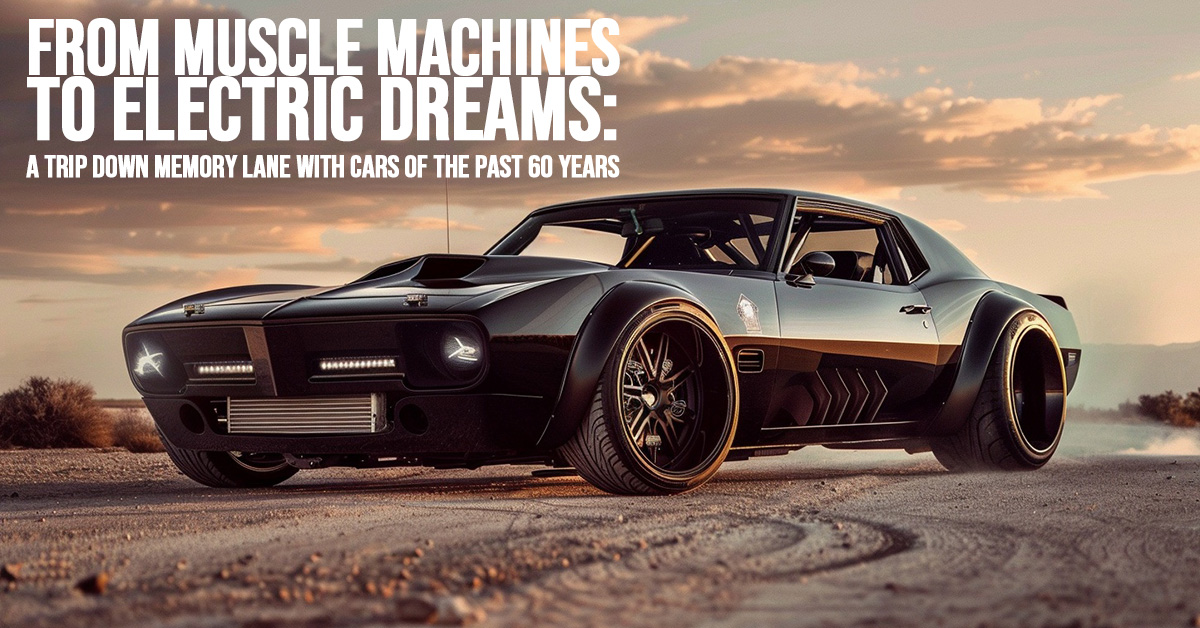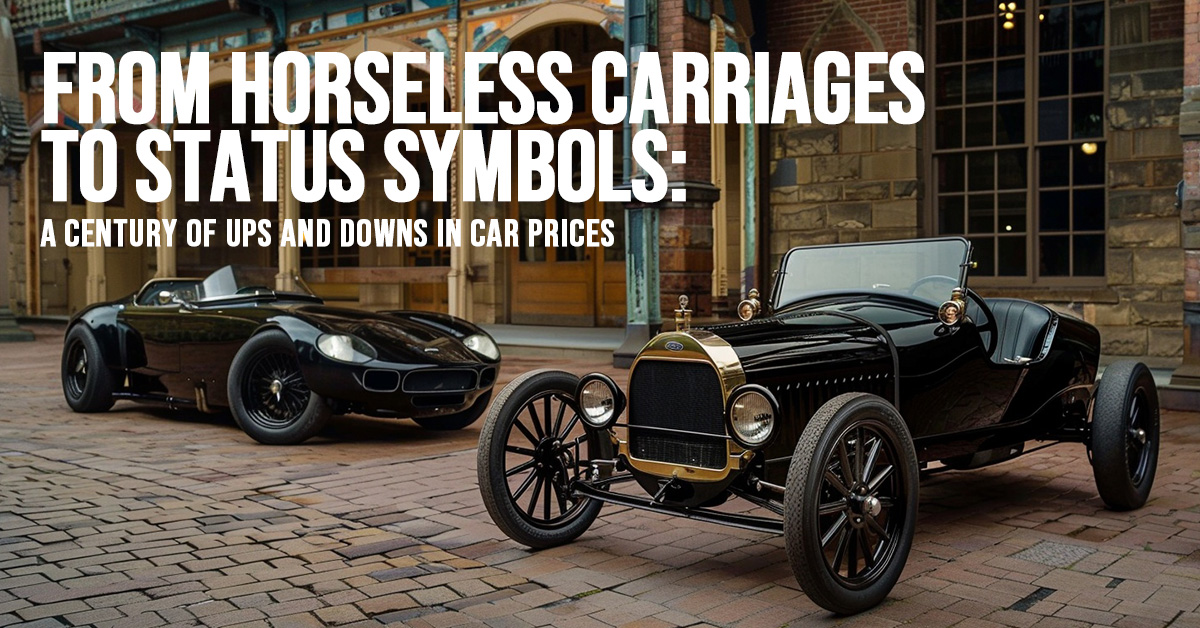
From Muscle Machines to Electric Dreams: A Trip Down Memory Lane with Cars of the Past 60 Years
Ever get lost in a classic car commercial and reminisce about the bygone days of cruising in a sleek muscle car? Or perhaps you marvel at the self-driving car prototypes and wonder what the future holds for automobiles? No matter your automotive fancy, one thing’s for sure: cars have come a long way, baby! Let’s take a nostalgic spin through the past 60 years and explore how these fascinating machines have transformed.
1960s: The Era of the Muscle Car
The 1960s were a golden age for American car culture. This was the decade that gave us iconic muscle cars like the Ford Mustang and Chevrolet Camaro. These powerful, stylish beasts were all about speed and head-turning looks. Gas prices were a mere 30 cents a gallon, so fuel efficiency wasn’t exactly a priority. Back then, the average new car price was around $2,700, though prices climbed to $4,000 by the end of the decade.
1970s: Oil Crisis Spurs a Shift in Gears
The carefree days of the muscle car came to a screeching halt in the 1970s. The oil crisis forced a dramatic shift towards more fuel-efficient vehicles. Average gas prices skyrocketed to over $1 a gallon, making those gas-guzzling muscle cars a lot less appealing. This decade also saw the introduction of stricter safety regulations, leading to more secure car designs. The average new car price in 1975 was around $4,800, reflecting the increasing complexity of these vehicles.
1980s: Embracing Efficiency and Alternative Fuels
The 1980s challenged carmakers to develop vehicles that could achieve a minimum of 20 mpg. Japanese automakers led the charge with fuel-efficient models that appealed to a new generation of drivers. The average new car price also saw a significant jump, reaching $7,000-$8,000. This decade also witnessed the early introduction of alternative fuel vehicles, though they remained a rarity on the road.
1990s: Comfort, Technology, and Rising Costs
The economic boom of the 1990s saw a rise in disposable income for American families, which translated to a rise in new car prices. The decade began with an average new car price of $12,000, but by the turn of the millennium, that number had ballooned to nearly $20,000. This era also saw a focus on comfort and technology features, with amenities like air conditioning, power windows, and even early in-car entertainment systems becoming more commonplace. Electric vehicles began to emerge as a more serious contender in the auto market, though their availability and affordability were still limited.
2000s: SUVs Thrive, Prices Climb, and Electric Cars Gain Traction
The new millennium ushered in an era of dominance for trucks and SUVs. These larger, more powerful vehicles became the go-to choice for many families, fueled by relatively stable gas prices. However, with this growing popularity came a rise in average new car prices, reaching close to $30,000 by the end of the decade. While car designs remained somewhat conservative, advancements in technology continued apace, with features like navigation systems and Bluetooth connectivity becoming increasingly common. The 2000s also saw a significant leap forward for electric cars, with more models available and boasting greater range.
2010s: Trucks Rule the Road, Electric Cars Take Charge
The dominance of trucks and SUVs continued through the 2010s, pushing the average new car price to a staggering $37,000. However, a growing concern for the environment fueled a renewed interest in electric vehicles. These eco-friendly alternatives became not only more common but also more powerful and offered greater driving ranges. While gasoline-powered vehicles remained the majority on the road, the seeds for an electric future were firmly planted.
2020s and Beyond: A New Era for Cars
The 2020s have brought unexpected challenges to the auto industry, with car shortages leading to a sharp increase in both








